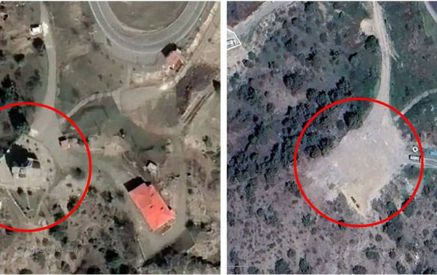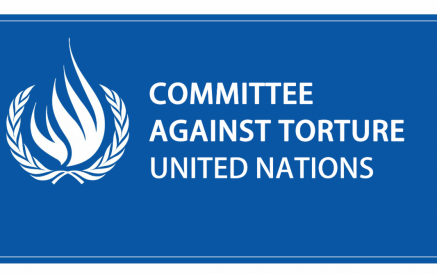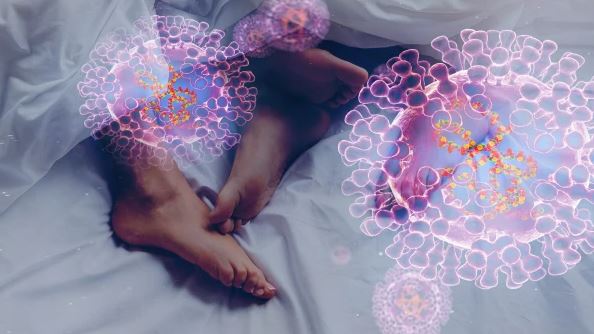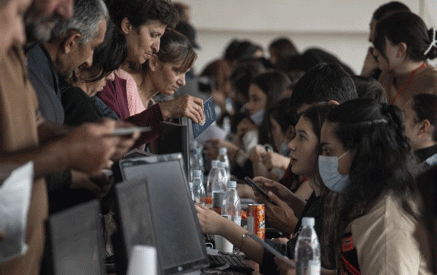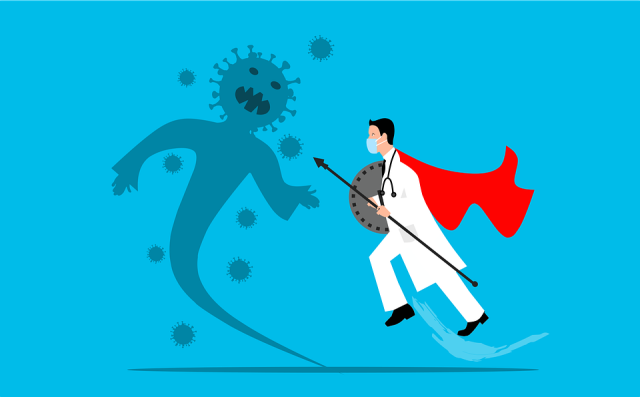Responding to the monkeypox outbreak
Perspectives of clinicians treating patients with the disease
In just over two months a global outbreak of monkeypox in non-endemic countries has led to more than 15,000 cases, with over two thirds reported in the WHO European Region. On 23 July 2022 the WHO Director-General determined that this multicountry outbreak constitutes a Public Health Emergency of International Concern. This represents the highest level of alert under the International Health Regulations.
We spoke to two clinicians in Portugal and Italy about their experience of treating patients with monkeypox to find out how concerned they are about the current outbreak and to clear up various misconceptions that surround it.
Dr Francisco Silva is a General Practitioner in Lisbon, Portugal, who also works at a sexual health clinic in the city. His facility was one of the first in Europe to see increased numbers of patients presenting with similar symptoms that – thanks to the astuteness of clinicians like Dr Silva and others – were quickly identified as being caused by monkeypox.
Read also
“At the beginning of May I had several patients presenting with what appeared to be ulcers. We tested them for sexually transmitted infections but everything came back negative, so we knew something was wrong. Our lab reported the cases through the EpiPulse online platform (run by the European Centre for Disease Prevention and Control) and soon afterwards we discovered that we had our first cases of monkeypox”.
Indeed, it was thanks to the prompt reporting of these unusual cases being identified in sexual health clinics in Portugal, the United Kingdom, and then other European countries that the dots were quickly connected to conclude that we were dealing with a significant outbreak of monkeypox, on a scale never seen before.
Dr Cristina Mussini is a Professor of Infectious Diseases and Director of the Infectious Disease Clinic at the University of Modena and Reggio Emilia, Italy.
“I have been working on HIV since 1998 and our clinics follow about 200 patients living with the disease. Because this patient group tends to be better informed about communicable diseases and used to self-checking for unusual symptoms, these individuals were the first to come to us when they developed strange rashes. However, since then we have also seen others as a result of referrals from our sexual health clinic”.
Not just a rash
However, in their experience, both doctors found that the cases presented to them did not necessarily have the rash that is considered the typical symptom of monkeypox, which highlights the need for people to seek medical advice quickly and to get tested.
“Most people are looking for what they’ve been told to watch out for on social media – so a rash – but it’s not what we always see. I’ve seen people with anal, genital and oral ulcers or no visible ulcers, and swollen lymph nodes” notes Dr Silva. “We often need to thoroughly investigate to determine whether it’s monkeypox, and this can involve an anoscopy to look for lesions inside the anus and then perform a swab test to get a full diagnosis”.
“Some of our patients that have gone on to test positive for monkeypox had a fever, inflammation of their colon and rectum areas, while others had blister-like lesions on their chin, chest and stomach,” reports Dr Mussini.
Not a disease associated with any one community
Although most of the cases examined by the two clinicians have been among men who have sex with men (MSM), both Dr Silva and Dr Mussini are keen to stress that this is not a disease that is exclusive to gay men, and that no stigma should be attached to it as a result.
“At first, the cases we saw were connected to travel to Pride events in various countries, but then we saw more cases that could only have come about as a result of local transmission,” says Dr Mussini. “Anybody who has close personal contact with an infected individual or their contaminated belongings can develop monkeypox,” she adds.
“I was afraid at first that the disease would be associated with the gay community,
but the Government of Portugal has done a very good job on social media of educating people about monkeypox and explaining that anyone can get it,” says Dr Silva.
Even so, it is important to point out that MSM are currently at higher risk of contracting monkeypox because of the social and sexual networks in which the disease has been spreading the fastest. Most cases continue to be reported among men who have been exposed as a result of having sex with other men. However, monkeypox cases are also being detected in women and children, and clinicians must be alert to the possibility of monkeypox in their assessment of any patient.
Not the new HIV
Having spent more than 30 years working in the HIV field, Dr Mussini is perhaps more qualified than most to recognize that monkeypox does not attack the body’s immune system in the same way and that, unlike with HIV, the symptoms usually go away after only a few weeks without the need for treatment.
“This shouldn’t be something that scares people, but it’s something they should know is out there, like sexually transmitted diseases. People should be well informed about what it is and what the risks are, and should contact their doctors as soon as they have any of the symptoms,” she says.
Helping to prevent further infections
In his consultations with patients who are at increased risk of contracting the disease, Dr Silva is pragmatic in his recommendations:
“I advise reducing the number of sexual partners, and, at least for the time being, avoiding sex clubs, because most of the cases I have seen – though not all – can be traced back to attending such venues”.
The need to actively reduce individual exposures to monkeypox is critical to interrupting its transmission in Europe. Individuals, especially MSM who have multiple sexual partners, should seriously consider the advice given by Dr Silva.
Be alert to monkeypox
Monkeypox is contracted as a result of prolonged personal contact with an infected individual (including sexual contact) or coming into contact with their contaminated belongings. Symptoms usually include one or more of the following:
rash, spots, ulcers, or blister-like lesions anywhere on the body, but often in the genital area
swollen and painful lymph glands
fever, headache and muscle aches, chills or exhaustion.
WHO urges anyone who has developed any of these symptoms following close personal contact to consult their health-care provider immediately. Be aware of your own personal risk. If your risk is high, find out what you can do to reduce it. This will protect your health and the health of those you hold close.









